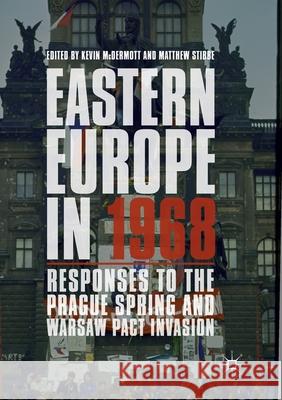Eastern Europe in 1968: Responses to the Prague Spring and Warsaw Pact Invasion » książka
topmenu
Eastern Europe in 1968: Responses to the Prague Spring and Warsaw Pact Invasion
ISBN-13: 9783030083618 / Angielski / Miękka / 2018 / 311 str.
Kategorie BISAC:
Wydawca:
Palgrave MacMillan
Język:
Angielski
ISBN-13:
9783030083618
Rok wydania:
2018
Wydanie:
Softcover Repri
Ilość stron:
311
Waga:
0.40 kg
Wymiary:
21.01 x 14.81 x 1.78
Oprawa:
Miękka
Wolumenów:
01
Dodatkowe informacje:
Wydanie ilustrowane











